How to Thank a Veteran on Veterans Day
Please don't call us "heroes." Honor our service by telling us you participate in our democracy.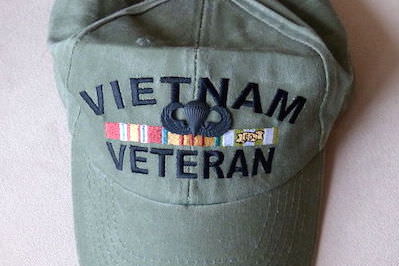 Dick Conoboy's cap, which declares his military service. (Dick Conoboy)
Dick Conoboy's cap, which declares his military service. (Dick Conoboy)
This piece first appeared at Northwest Citizen.
Several years ago I was in Bend, Ore. over Memorial Day weekend when, while eating breakfast in a restaurant, a woman approached me and thanked me for my service. I was wearing “The Cap”, which you see above. I smiled in appreciation while she continued, saying, “Welcome home.” I blurted out that I had come home 45 years ago. The remark seemed to confuse her — did she know the time period of the Vietnam War? — and made me regret saying it. I don’t often wear the hat, but now when I do it is expressly to engage people. My assumption is that most people who approach veterans to express appreciation do so with good intentions. However, this encounter in Bend forced me to consider the benefits of a different kind of engagement, one that will enrich both the veteran and the citizen.
Much of our “thanking the troops” comes in the way of concerts, downtown parades and ceremonies at the local city hall or cemetery. These days, sports teams at all levels have boarded the “thank the troops” bandwagon and fill pre-game and half-time shows with military jet flyovers, unfurling huge flags, playing martial music or honoring particular veterans while fans roar and cheerleaders wiggle and scream. The announcer, to much applause, may then speak of our “heroes.”
I request that the blanket referral to veterans as “heroes” stop. I hear it a lot nowadays and it always makes me uncomfortable, not because there aren’t veterans who are combat heroes, but because the term is used so broadly it loses meaning and trivializes the notion. If you were to go into any VFW hall or other gathering of veterans and ask all the heroes to stand up, you would most likely get blank stares. Going to a war zone or being shot at is not heroic in itself; most soldiers see that as merely doing their duty. We do them more honor if we engage them in conversation about their service than if we place them on a pedestal. Pedestals create distance. On the other hand, I must point out that the struggles many of these veterans endure after returning home are heroic in nature. But I wonder how many people who have no connection to military service understand that particular version of heroism. Everyone goes home after the hoopla at the events I describe above, and the “heroes” — if they have a home — are forgotten until the next holiday or game.
Given the gulf that exists now between the soldier and the citizenry, it would be beneficial for the public to engage our veterans on a personal level, such as the opportunity I had and missed with the woman in Bend. I suggest that people who are inclined to greet and thank a veteran from any war (not a “conflict,” as conflicts are what one might have with a teenage son or daughter over the issue of taking the car) one could at the outset express some interest in where he or she served or the job they had. This may lead to further conversation about the veteran’s actual experience and will demonstrate that one’s interest is not just passing or perfunctory. It is important also to remember that some veterans may not be proud of their service and may instead be ashamed either of the war they fought in or what they did while participating.
Here is a short list of things I personally would like to hear from people as they express their appreciation. If you think the service of any veteran was worthwhile and helped preserve the freedoms we enjoy, please tell us that you
• Participate as a citizen in government at some level • Write to your representatives on issues important to you • Discuss politics and government with your family at the dinner table • Expose your children to the process of government at city council or county council meetings • Take your family to visit the state capital or our nation’s capital to learn it workings • Work to insure civics and government are taught in our schools • Take your children to historic sites and explain their significance • Value the teaching of history and critical thinking skills • Demand our nation care for the men and women it has sent to war • And finally, that you vote in elections, and moreover, that you vote for men and women of peace
Dick Conoboy is a Vietnam War veteran, a former analyst in the POW/MIA Office at the Department of Defense and former Resource Manager at the Soldiers’ and Airmen’s Home in Washington D.C.
Your support matters…Independent journalism is under threat and overshadowed by heavily funded mainstream media.
You can help level the playing field. Become a member.
Your tax-deductible contribution keeps us digging beneath the headlines to give you thought-provoking, investigative reporting and analysis that unearths what's really happening- without compromise.
Give today to support our courageous, independent journalists.

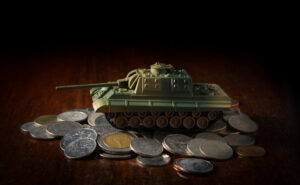
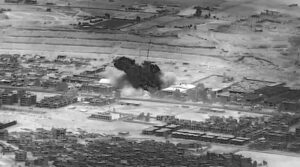
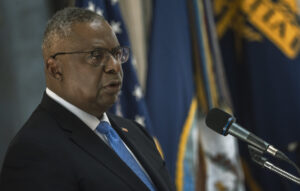


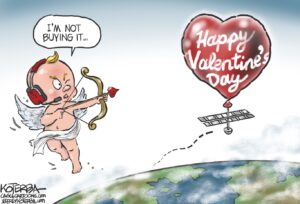


You need to be a supporter to comment.
There are currently no responses to this article.
Be the first to respond.